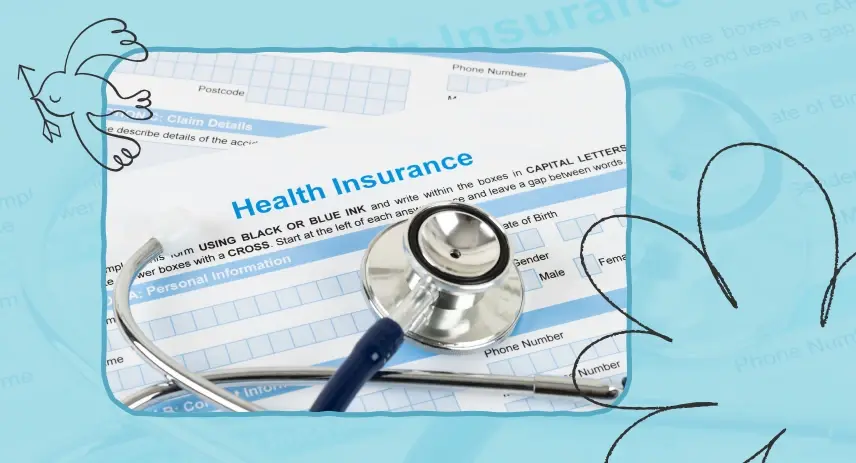What is a PEO? And how it can help your business

Professional Employer Organization (PEO)
Expanding into the United States often involves many HR and compliance challenges, from diverse state-by-state labor laws to the complexities of offering employee benefits that meet local expectations. For global employers entering or growing within the U.S. market, unfamiliarity with local requirements can quickly become a serious operational risk.
A professional employer organization (PEO) can ease the burden by handling critical human resources functions like payroll processing, benefits administration, and liability. It’s one of several choices that business owners have to support hiring and HR operations, alongside models like an employer of record (EOR), which directly employs workers on your behalf.
The right choice depends on your expansion timeline, legal setup, and long-term business needs. In this guide, we’ll explain how PEOs work to help you decide if it’s the right HR solution for your business's U.S. expansion.
What is a PEO?
A professional employer organization (PEO) is a human resources partner that works with businesses through a co-employment relationship. In this model, the PEO co-employs staff with the client company and shares certain employer responsibilities—such as tax filings, payroll processing, and benefits administration—while the client company retains control over day-to-day management and business operations.
This co-employment arrangement allows business owners to offload complex HR tasks while maintaining authority over their team and workplace culture. It also offers flexibility, as businesses can end the partnership if they decide to bring HR functions back in-house.
Why use a PEO?
Running a business can be a challenge. Getting buried in HR, payroll, and compliance tasks only makes it even more challenging. Here’s how a co-employer model with a PEO lightens the load and sets your organization up for smarter growth:
- Access to competitive employee benefits packages: PEOs pool employees across multiple client companies to increase group size and buying power. This helps smaller businesses access premium health insurance, retirement plans, and other benefits—often at better rates than they could negotiate alone. PEO services also administer these benefits from enrollment to claims support.
- Get payroll and taxes right: Managing payroll taxes and staying compliant with the IRS is tedious and risky. A PEO takes care of payroll processing, filings, and tax withholdings with precision, reducing costly errors.
- Simplifies risk management: Securing and administering workers’ compensation insurance often involves navigating a lot of red tape. PEO services manage policies, assist with claims, and reduce overpayment.
- Stay lean, scale quickly: When your team grows, so do HR needs. PEOs offer flexible, full-service HR support that scales with your organization. That means there’s no need to burden your internal human resources department.
How does a PEO work?
Partnering with a PEO is a collaborative way to streamline HR management and administrative tasks, allowing business owners to focus on growth and operations. Instead of outsourcing HR services, companies that partner with a PEO share certain employment responsibilities and work closely with the PEO as part of their internal team.
Here’s how a typical PEO partnership functions:
- Signing a co-employment agreement: The partnership starts by defining roles and responsibilities. The PEO typically handles payroll, tax filings, and benefits administration, while your company retains control over hiring, daily management, and workplace policies as outlined in your employee handbook.
- Handling payroll, taxes, and benefits administration: The bulk of a PEO’s work is managing complex and time-consuming HR workflows, like calculating and filing payroll taxes, enrolling employees in benefits programs, and ensuring that employees are paid accurately and on time.
- Providing HR compliance support: Local, state, and federal labor laws and regulations are complex. PEOs stay current on changing rules and help businesses manage HR compliance in areas like workers’ compensation insurance and maintaining payroll records, tax documents, and employee files.
What do PEOs not do?
Even with the best PEO on your side, there are limits to what it can take on. Here’s what a PEO doesn’t do:
- Make business decisions: PEOs might provide guidance on payroll compliance or benefits packages, but they don’t make decisions. It’s up to leadership to build strategies that improve retention, reduce turnover, and shape overall company culture.
- Manage day-to-day employee operations: Organizations still manage their team’s schedules, assign work, and make hiring and firing decisions.
- Replace internal HR leadership: A PEO doesn’t replace the need for an internal HR team. While PEOs take care of administrative tasks, HR teams focus on people strategy and employee experience.
4 examples of companies that benefit from PEOs
Many organizations can benefit from working with a PEO. Here are four examples:
- Fast-growing tech startups that need to focus on scaling their business
- Small businesses with limited resources in their internal HR department
- Organizations in highly regulated industries that face complex compliance, workers’ compensation insurance, and tax requirements
- Businesses with distributed teams that need help managing multistate payroll and employee benefits packages
Types of PEOs
All PEOs operate as co-employers, sharing certain employer responsibilities with your business. However, some carry certifications or accreditations that signal stronger financial stability and compliance.
There are several certifications for PEOs, including certified PEOs (CPEOs), ESAC-accredited PEOs, and NAPEO-accredited PEOs:
- Certified PEOs (CPEOs): Approved by the IRS, CPEOs meet strict tax compliance and financial reporting requirements. These PEOs often tend to come at a higher cost.
- ESAC-accredited PEOs: Certified by the Employer Services Assurance Corporation (ESAC), these PEOs are evaluated for financial health, ethical practices, and regulatory compliance.
- NAPEO-accredited PEOs: Certified by the National Association of Professional Employer Organizations (NAPEO), these PEOs meet high financial and ethical standards to qualify for membership.
PEOs vs. other HR solutions
Not all HR support works the same way. Here’s how PEOs compare to other HR solutions:
PEOs vs. HR software
- PEOs provide hands-on services, including payroll processing, benefits administration, and compliance support.
- HR software is a tool, not a partner. Software centralizes and facilitates time tracking, onboarding, and payroll workflows, but HR teams are still responsible for managing them.
PEOs vs. payroll providers
- PEOs manage payroll and tax liability, file with the IRS, and offer broader HR services like benefits and workers’ compensation insurance.
- Payroll providers focus only on payroll processing and tax filings. They typically don’t manage benefits, compliance, or risk.
PEOs vs. EORs
- PEOs co-employ staff with the client company, taking care of HR admin while the client company oversees the employees’ day-to-day work.
- Employers of record (EORs) act as the sole legal employers of the employees you hire through them. They help you compliantly hire international employees in regions where setting up a local entity involves significant time, cost, and ongoing legal maintenance. They also handle global payroll and benefits.
PEOs vs. internal HR
- PEOs supplement your in-house HR team by providing scalable administrative support.
- Internal HR teams offer more company-specific strategy but require hiring, training, and investment in HR tools, especially if you need full-service HR support.
When to consider an employer of record instead
PEOs typically support employees across the U.S., but for international hiring, you need an EOR. An EOR acts as the legal employer in the countries where you hire, handling compliance, payroll, and benefits—so you can build global teams without setting up legal entities in every location.
With Oyster’s global expansion services, it’s easy to hire, onboard, and pay talent in 180+ countries, helping you build stronger employment relationships with your team, wherever they work.
Book a demo to learn more.
.webp)
FAQs
How much does a PEO cost?
Most PEOs price their services based on either your total payroll or the number of employees on your team, though some offer flat monthly rates per employee. The final cost varies based on your company’s size, the services you choose, and the benefits the PEO provides.
Who is the legal employer under a PEO agreement?
A PEO agreement creates a co-employment relationship. Your business remains the worksite employer, while the PEO shares certain legal responsibilities as the co-employer of record for tax and administrative purposes.
Can a company use both a PEO and its own HR team?
Yes. Many companies keep in-house HR teams to focus on culture, performance, and people strategy, while the PEO manages administrative tasks like payroll and benefits. It’s a collaborative partnership, not a replacement.
About Oyster
Oyster enables hiring anywhere in the world—with reliable, compliant payroll, and great local benefits and perks.

Related Resources


.webp)
.webp)


